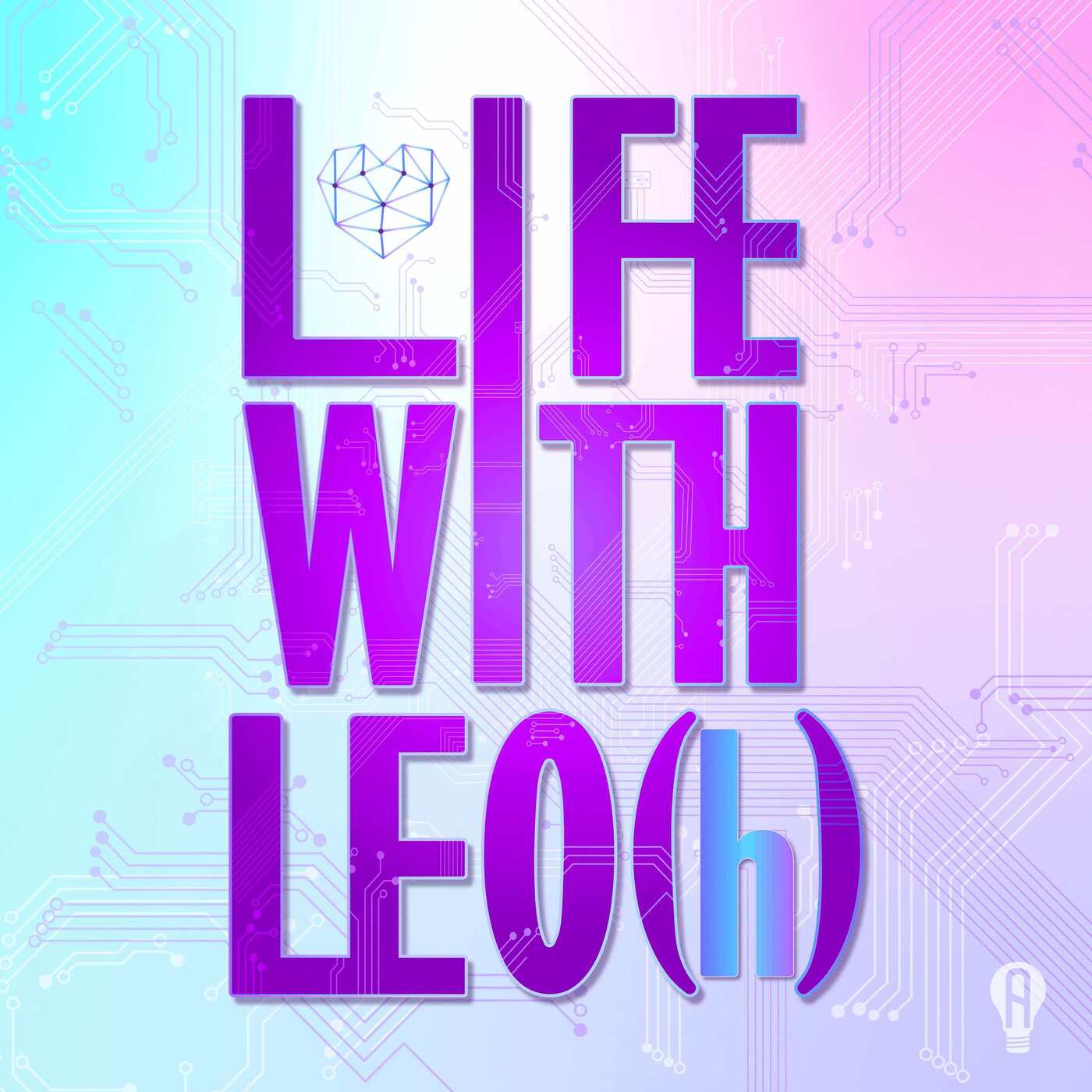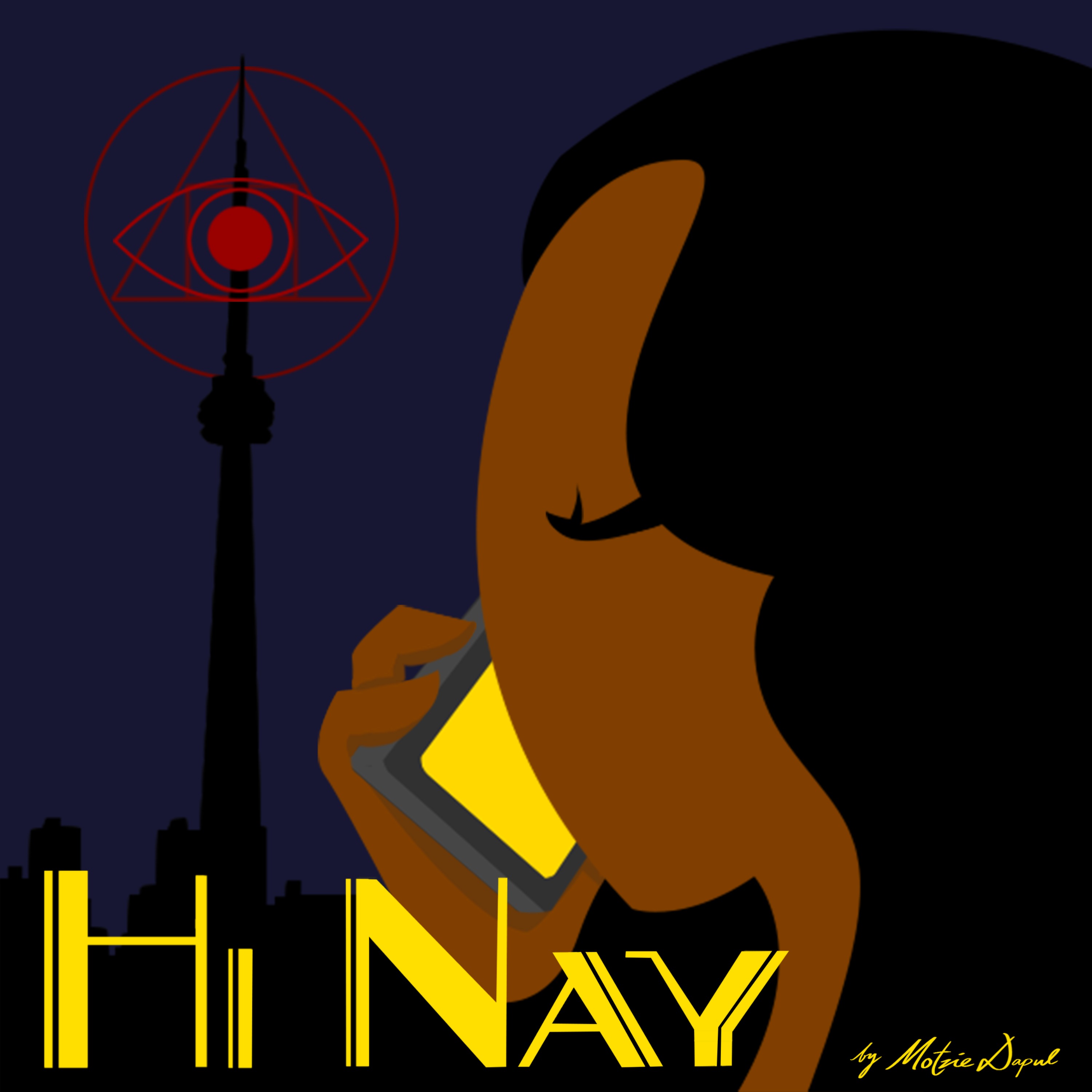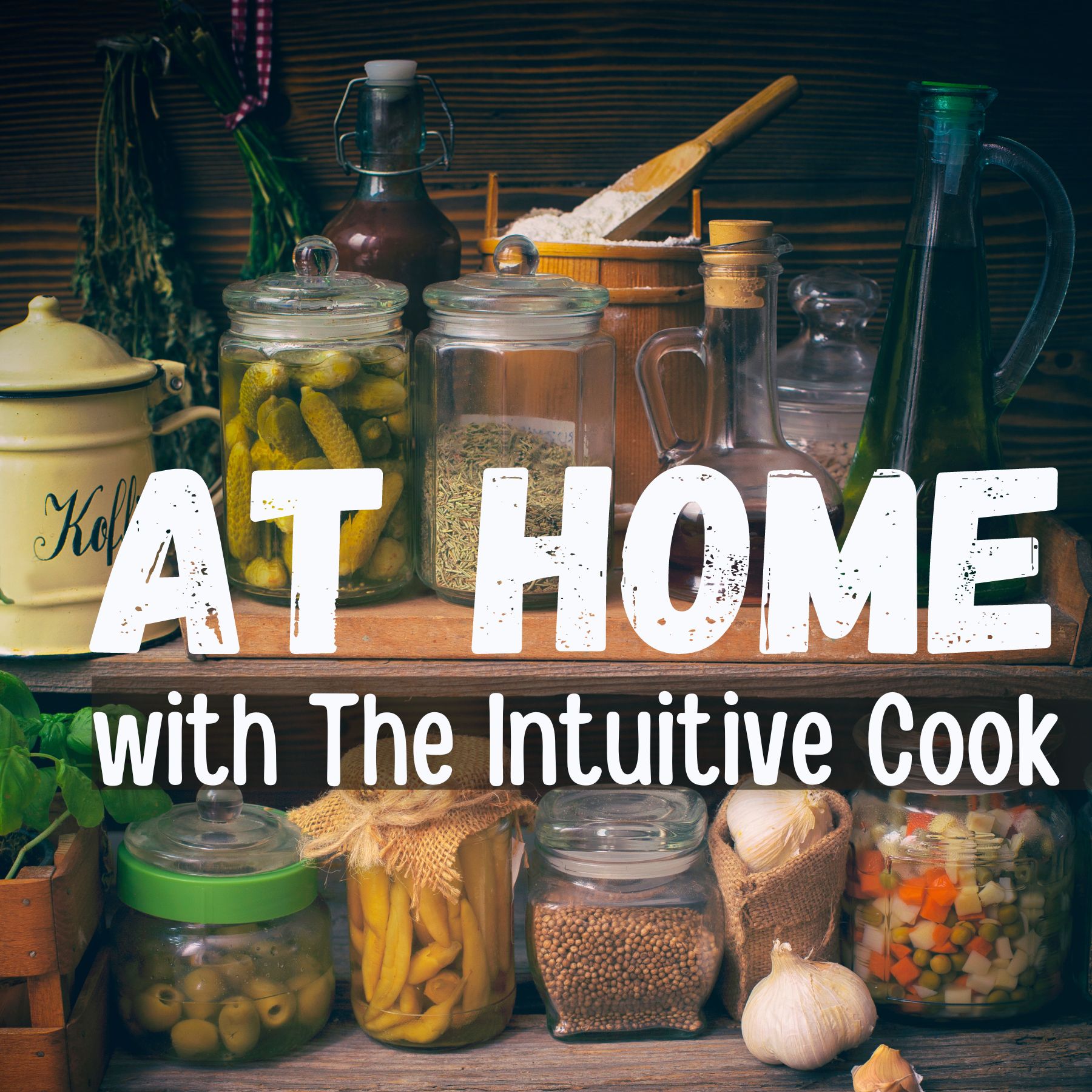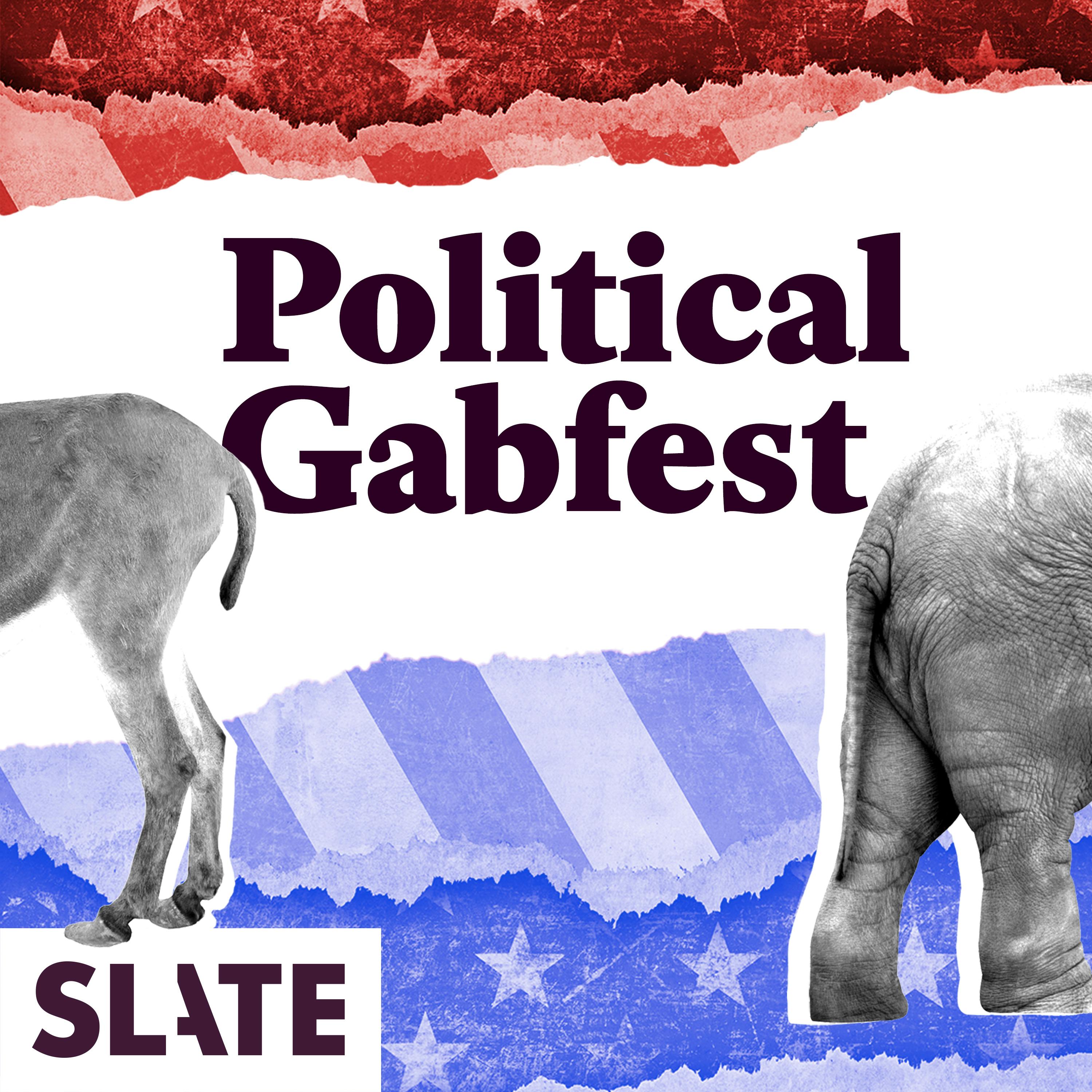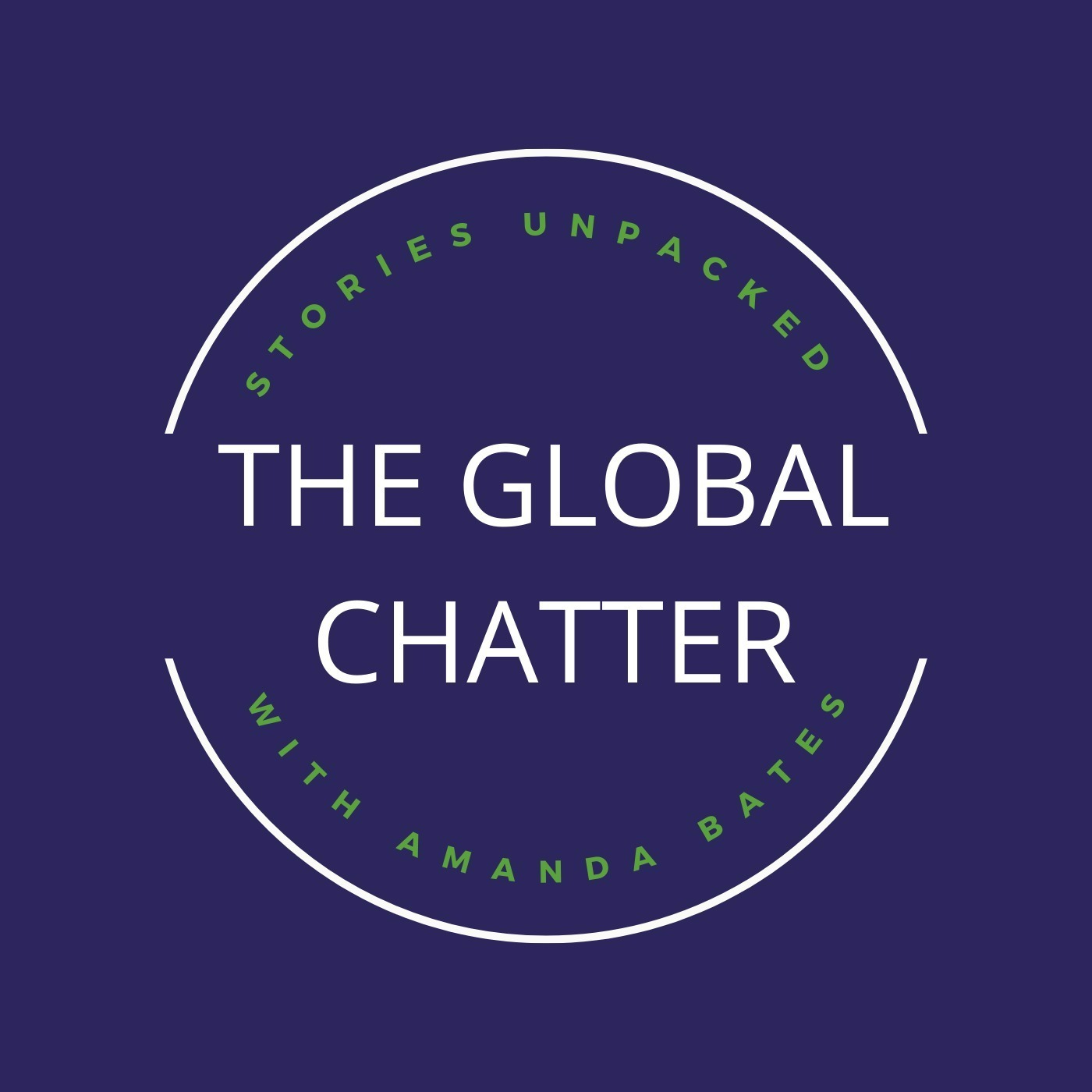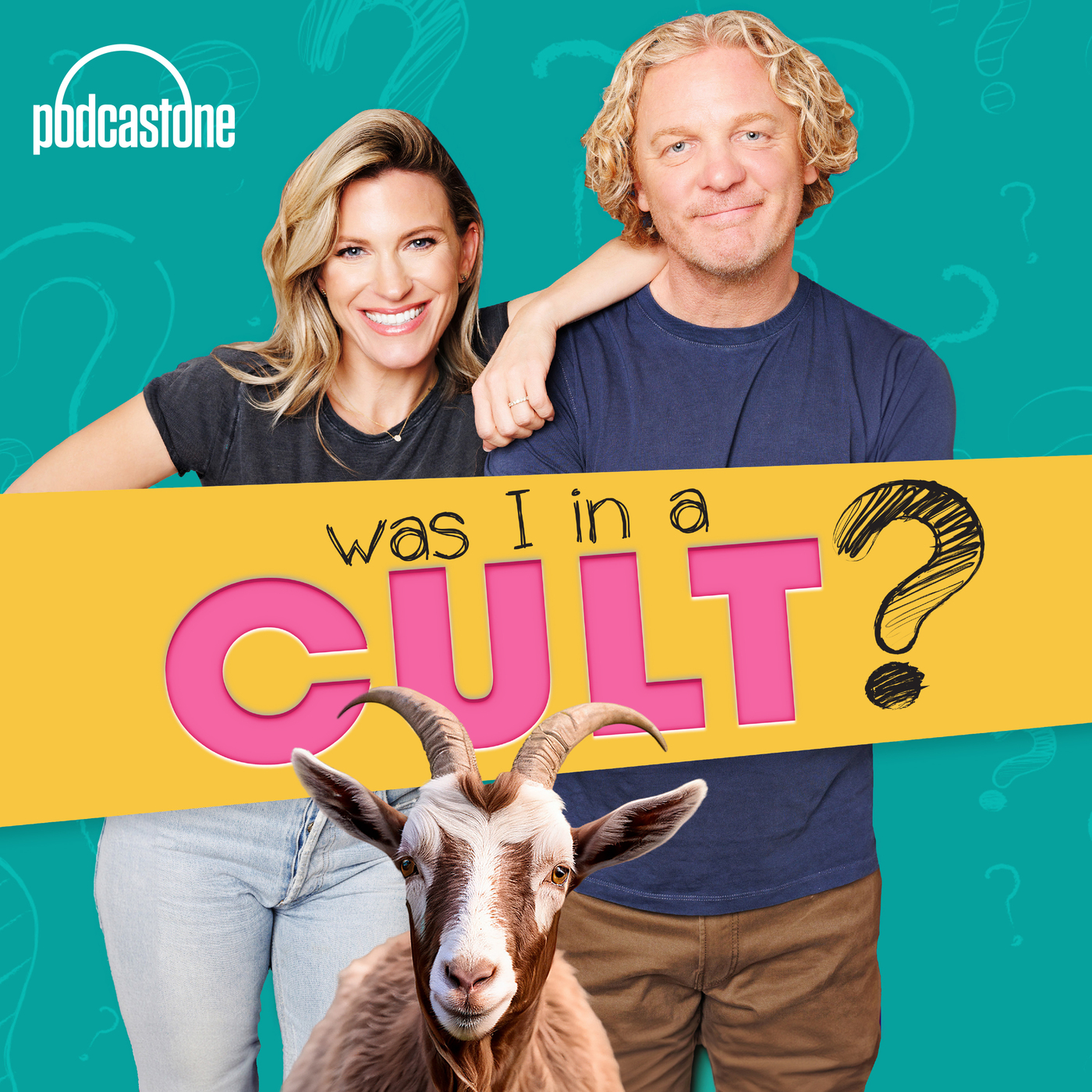
Sane and Simple Podcasting
Helps DIY podcasters manage and grow their podcast with no nonsense, timely tips and tricks from a long time content creator and Podcast Service Provider. Tips include multiple mediums like audio, video, newsletters and using ChatGPT to get share their experience, their stories, their skills out there so they can spend more time connecting than creating.
www.coffeelikemedia.com
Sane and Simple Podcasting
Treating your podcast like a comic book, not a novel
So far this season, we've focused on the super happy, positive side of podcasting with a connection focus. It would be irresponsible of me to finish the season off without some pain. Specifically creative pain. Guest K.O. was gracious enough to share his pain with us. Hint: it's the intersection of podcast format and engagement
KO's website: https://www.particulatemedia.com/
✨ Have a few specific questions? Book a micro consult call here: zcal.co/coffeelikemedia/parkbenchsession
✨ Want to do a deeper dive into your podcast YouTube channel's growth, workflow, optimization? www.coffeelikemedia.com/consults
✨ Ready to commit to a 3 months growth experiment to really find out how YOUR YouTube channel can grow? www.coffeelikemedia.com/coaching.html
✨ Microphone: Samson Q2U✨
- United States: https://amzn.to/3Bk58e3
- UK: https://amzn.to/4g2pVlr
- Germany (ships to Denmark): https://amzn.to/4f2iY2t
🎵 Music: SourceAudio: https://www.sourceaudio.com/
😋 Host on Buzzsprout: https://www.buzzsprout.com/?referrer_id=2022201
👀 Record and go live with Restream: https://restream.io/join/Kro9rJ
Steph:
Welcome to Podcast to Connect, where we share stories of finding our peoples via our podcast and supporting mediums. Thanks to StreamYard for sponsoring this show. I'm Steph Fucio, podcast strategist and editor currently in Copenhagen, Denmark. I've been making valuable connections with my own podcast ecosystems for over six years, and I'm here to help you do the same. Welcome to season three, where we're focused on one thing: connections. In the last episode, we talked to Rebecca about her podcast and newsletter connections, and today we're talking to another North American, K.O. Myers. I want to share two quick things from his web presence that I found absolutely wonderful. He got his start in audio production at the age of ten by writing, recording, and starring in action Sci-Fi , dramas and parodies on his grandmother's portable cassette recorder. We are so similar!
KO:
We are. I think I liked playing the villain better, honestly.
Steph:
Oh, I used to make the goofiest stuff. I can't even tell you what it is anymore. I just know that I would carry my recorder around and make people listen to it, and my family is just like, please stop.
KO:
The parody newscasts were also ahead of their time, I think, right?
Steph:
We're geniuses. That's just it.
Also, he's worked in research programs, communication and development, roles for judicial policy, LGBTQ Plus, and youth advocacy nonprofits. That kind of variety and background, I think, is what makes podcasters and podcast service providers just such freaking gems. And yes, I'm calling you a gem, KO. I'm so happy to be talking to you today and to be talking about connections. Thank you for being here.
KO:
Thank you very much for having me, Steph.
Steph:
All right. Well, that's where the happiness ends, because we were chatting a little bit before we pressed record, and we hit a moment of creative pain with your podcast, with connections. And I want to start there because that's a pain that a lot of people have. Can you describe the dissatisfaction that you have?
KO:
Absolutely. So my podcast is called currently called Role Factory. It is a tabletop role playing game podcast mostly focused on Dungeons and Dragons Fifth Edition, and the concept was that I was going through the character sheet one number at a time and having a guest come on to do a short scenario explaining what that number was. So if you wanted to learn how to how to roll an attack or how to save yourself from danger using a specific statistic, you'd be able to listen to that episode and in ten minutes, get an explanation and an example to help you understand how to do that. And it's a lot of fun. I basically get to be a dungeon manager for a short scenario, but I realized that at some point, the amount of collaboration, the amount of engagement with the guest wasn't quite where I wanted it to be. And what helped me realize that was that I was having trouble sitting down to create episodes. It was more of a slog than I wanted it to be. And the reason that the sort of explanation that I eventually came up with was that I really do thrive in a more collaborative environment. I like back and forth, I like bouncing ideas around and having the nearly sole responsibility of coming up with this scenario and laying it out for the guest wasn't as creatively engaging as I wanted it to be.
Steph:
Right. Like, how did you know that there was a connection that would be better than the one you were having? What were you comparing it to outside of the podcast?
KO:
Sure. I think there are two levels of comparison.
One of them is just personal from having had conversations, not as often as I'd like to, but having conversations with other people who write and run games and being able to say, hey, I had this idea for this scenario, I want to run this mystery, but I don't know exactly what the clues I should leave are. Or I have this idea for a monster, but it seems like it might be underpowered for the level of the party. And so I want to make it more dangerous. How do I do that? And having those conversations is really fun for me.
And then a sort of more public comparison. There are lots of shows that do kind of behind the scenes that do, here is advice for role playing, game masters and players, or that do like here are things you can use in your game, or that are behind the scenes kind of dissecting and reviewing episodes of actual play shows. So they'll play the game and then they'll go back and they'll talk about what was it like to be involved in the story. And so there are lots of examples of that much more collaborative idea bouncy model out there. And I find myself thinking about why I find those shows appealing. It is cool to get a glimpse behind the scenes, but it also really is very collaborative and shared and that appealed to me.
Steph:
What were some of the examples of the shows that had that level of bounciness? I love that.
KO:
Probably my favorite is actually a web video series called Dimension 20. It's published by Dropout. Brendan Lee Mulligan is the game master for most of those games and they do something called Adventuring Party. So they will basically they shoot all their seasons and shoot their season in a block. And then as each episode drops, they'll have an Adventuring Party episode where they come in having just watched back the most recent episode that's published, and then the players and the GM talk about it, which is really fun. There's another project that Brennan Lee Mulligan does with Erica Ishii, Arabia Iyengar, and Lou Wilson called Worlds Beyond Number. That is a podcast where they do the same thing. They'll release an episode one week and then the next week for their patrons, they have what's called their Fireside chat where they again review the most recent episode, talk about the choices that they made, talk about the way the story developed. So they talk about it both from a game perspective and sort of from an acting perspective and talking about the role playing. And both of those are favorites of mine.
Steph:
That's really fun. Those ones they're doing like the talking about it afterwards. Are they doing that live or is that recorded and then released?
KO:
They are pre recorded, although they're a lot more lightly edited than the actual play.
Steph:
That's what I was thinking.
KO:
That's a good question. I would be willing to bet there are some shows that do that live. I'm not aware of any. There were probably also sort of fan casts that will dissect an episode live, but I'm not aware of any off the top of my head.
Steph:
Right. Have you ever done your episodes live?
KO:
No. It's a short answer. Yeah, no, I've done some stage stuff in my day a million years ago. But no, I've never I've never done a podcast recording live.
Steph:
Oh, I I love the fact that we're not doing right right now. Probably like goes against what I'm about to say, but I absolutely love it. The stuff that happens in the chat room once you get the community over in there.
KO:
Sure.
Steph:
It makes it a completely different group. Not completely different, but brings out a lot more of the natural conversation and the folks that are actually talking in the episode. It's really fun. I mean, it takes a while to get used to looking at the chat room and keeping going and that kind of thing.
KO:
That's always been my hesitation is that pulling the focus away from the person I'm talking to versus stuff coming in from the chat. Sure. Oh, you know what, I'm sorry, I'm completely misremembering. I wasn't the host, but the first podcast that I got involved with was used to be recorded live because it was also a radio show. This was in 2010. At the time it was called Skeptically Speaking. It has since rebranded to Science. Yes, I started as a fan and ended up volunteering. They've since changed their name to Science for the People. It's conversations about science with scientists and science writers and journalists and that kind of thing. But it's no longer produced live. But in the beginning it was because it was airing on it was airing first on a college radio station in Edmonton, Alberta. And so they would do the interview live and then at various points we did experiment with having chat, but I wasn't hosting, so there was always somebody who was most of the time I was monitoring the chat and then I was sort of screening questions and sending them to the host. I have been involved in a live podcast recording back, which I mean, 2010 in podcasting years is practically a long time ago. Yeah, I guess I have been involved in that and completely forgotten.
Steph:
I have done some things where it was really important for me to stay focused and I would tell people at the beginning, hey, I'm going to look at the chat room afterwards and then I can answer the questions then. So I vacillate back and forth between which method to use depending on what is happening live, but there's a lot of different ways you can do it if that were of interest. What I find is that a lot of the times they're talking to each other, they don't even need people that are talking here to be in the chat room. It's just like another little community. Not little, another community. For people to connect to each other, that's different.
KO:
Yeah. And community among listeners is super important.
Steph:
Exactly. It's a connection that we sometimes forget about that people that like the stuff we're doing want to talk to each other too, because it's like interest.
KO:
Sure.
Steph:
All right, let's tell folks what you do in podcasting.
KO:
I am a freelance producer editor at Particulate Media. I mostly do editing, but I help people develop new shows. If they come with an idea, but they don't know how to get all the technical things lined up, I will help them do that and then hopefully when they have a show that they love doing, I can stay on as an editor. I do some promotional materials, like show notes and audiograms and transcripts and that sort of thing.
Setph:
All the things?
KO:
All the things, yes.
Steph:
And for folks who refuse to look in show notes, you know who you are, what is your website address?
KO:
It is particulatemedia.com okay, so you were.
Steph:
Dissatisfied with it because it didn't have the bounciness and the connectivity and you've changed it including the name. What's the new name again?
KO:
The new name is Adventure capital.
Steph:
Capital, okay. And you've recorded one or two new episodes?
KO:
I have recorded some test episodes. I have potential co hosts lined up and I have some potential guests. But yes, nothing published yet. I have a landing page at adventurecapitalpod.com. People can go and check out what the new format is going to be and what to expect, but so far, no new episodes.
Steph:
Okay, so the tests, how are they going?
KO:
They're going well. They're going well, are they? They are, yes. There's definitely much more of a it's it is much more much closer to the vibe I want it's we each have our own ideas and we share them and refine them and it is much more engaging and feels. I just also am not I'm not naturally inclined to the spotlight, which is weird coming, I'm sure, from somebody who has volunteered to be interviewed. But I'm much more comfortable with a focus where I'm sharing the attention.
Steph:
Right. The vast majority of the podcasters I've met are introverts, so I'm not surprised at all. But I think listeners might be because I think there's still the perception of if you put yourself out there, you must be a very extroverted person. It's like, no, this is just a safe space that I can then close my computer down and go away by myself.
KO:
Yes. Having it be very discreet and controllable is definitely my jam.
Steph:
Definitely. Okay, so how would you describe the main differences that you've noticed? I know it's not too many tests so far, but in the test so far, what has been the biggest shift for you?
KO:
It feels much less like I'm coming to the table and saying, okay, here's what we're going to do, and then guiding the guests through it. There's still a little bit of that because I am the person who has the format in my head and knows what I'm looking for, but the execution of it is much more, hey, here's my idea, here's my idea. Let's bring them together, let's shoot it around. And so, yeah, it is much more collaborative. It's also a little bit more spontaneous. The guests in the Role Factory episodes didn't know a ton about the scenario before they started, so it was other than what role they were going to be performing. And so that was also fairly spontaneous. But this, I think, is even more and there's just that energy about it.
Steph:
Is there anything else you're still tweaking with the format that isn't quite right yet? In the test.
KO:
Everything is open for tweaking because I think that, again, a lot of this came out of my just feeling creatively, like it wasn't exactly where I wanted to be. And so I'm giving myself permission and this is something I tell my podcasting clients is that I'm giving my permission to sort of treat it like a comic book rather than a novel, where each episode has the opportunity to experiment with art styles and lettering choices and with panel layouts and everything you can play with each individual episode. And I think it still has to connect thematically, but it's not like a novel where you have to have a generally at least, where you have to have a consistent style and a narrative throughline that runs all the way from page one to page last. Right, so I'm giving myself permission to experiment and change things up. If I don't if something doesn't feel like it's how I want it to go, I'm giving myself permission to experiment.
Steph:
So, one, thank you for the title. That comic book instead of novel is a brilliant title. You just saved me a lot of time on Chat GPT-2 is it sounds like you're letting go of some control and letting your creativity flow out of you more.
KO:
Absolutely.
Steph:
That balance is becoming more or that relationship is becoming more balanced.
KO:
Yes, and it is a challenge, but I'm trying to again, sort of honor. The advice that I give to my clients is that podcasting is work. That doesn't necessarily mean you need to be showing up at the same time every week or every day. What that means is you are going to be expending time, you're going to be expending energy. And so your production process needs to be cognizant of those things and work as well as it can with those things. And that also means your creative process has to honor those things as well. So if you are the kind of person who just likes I love having the same I love having the same intro beat, I want the same 15 seconds of intro music before my intro starts and just having it hit on that beat is just super satisfying. If that's the way you work, that's fantastic. If you are the kind of person who every once in a while you want to have a cold open because you just really like it, it makes it punchy. If you are the kind of person who likes to who wants to experiment with different music, you need to honor those creative impulses because that will make getting behind the mic so much less challenging.







